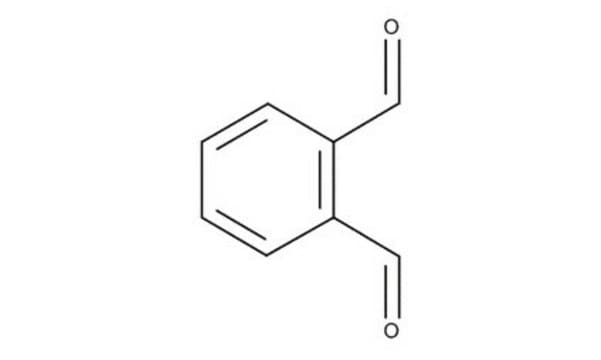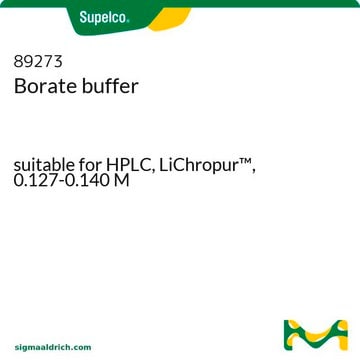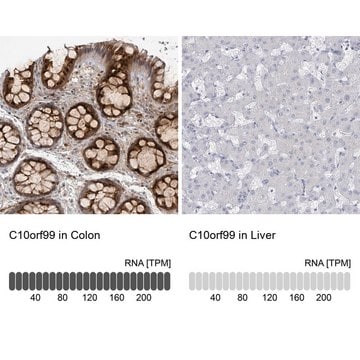P0657
Phthaldialdehyde
suitable for HPLC fluorimetric detection of amino acids, ≥99% (HPLC), powder or crystals
Synonym(s):
o-Phthalaldehyde, o-Phthalic dicarboxaldehyde, Benzene-1,2-dicarboxaldehyde, OPA
About This Item
Recommended Products
Quality Level
Assay
≥99% (HPLC)
form
powder or crystals
technique(s)
HPLC: suitable
color
white to light yellow
mp
55-58 °C
suitability
suitable for HPLC fluorimetric detection of amino acids
storage temp.
2-8°C
SMILES string
O=Cc1ccccc1C=O
InChI
1S/C8H6O2/c9-5-7-3-1-2-4-8(7)6-10/h1-6H
InChI key
ZWLUXSQADUDCSB-UHFFFAOYSA-N
Looking for similar products? Visit Product Comparison Guide
Application
- in the preparation of O-phthaldialdehyde reagent for analysing gentamycin content
- in the preparation of reagent for determining the degree of hydrolysis of milk proteins
- in the measurement of free amino acids of milk samples by O-phthaldialdehyde/N-acetyl-L-cysteine (OPA/NAC) assay
- in the derivatization of putrescine samples
Biochem/physiol Actions
Signal Word
Danger
Hazard Statements
Precautionary Statements
Hazard Classifications
Acute Tox. 3 Oral - Aquatic Acute 1 - Aquatic Chronic 1 - Eye Dam. 1 - Skin Corr. 1B - Skin Sens. 1 - STOT SE 3
Target Organs
Respiratory system
Storage Class Code
6.1A - Combustible acute toxic Cat. 1 and 2 / very toxic hazardous materials
WGK
WGK 3
Flash Point(F)
269.6 °F - closed cup
Flash Point(C)
132 °C - closed cup
Personal Protective Equipment
Choose from one of the most recent versions:
Already Own This Product?
Find documentation for the products that you have recently purchased in the Document Library.
Customers Also Viewed
Our team of scientists has experience in all areas of research including Life Science, Material Science, Chemical Synthesis, Chromatography, Analytical and many others.
Contact Technical Service













